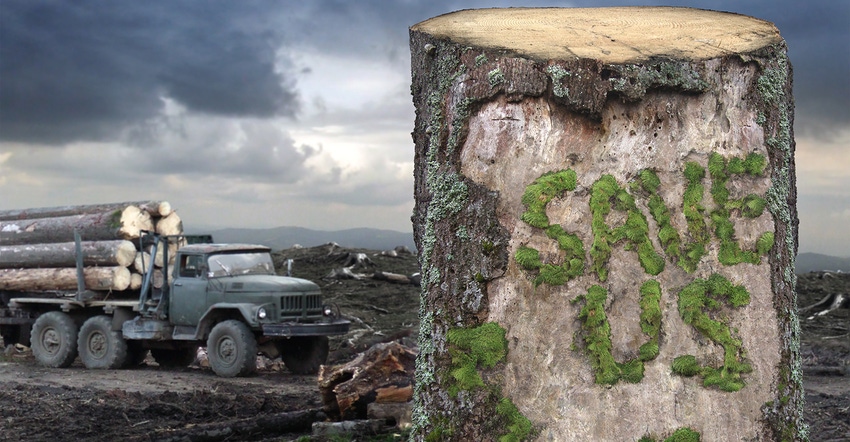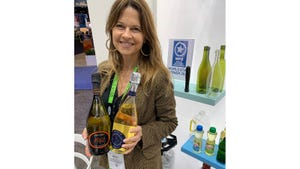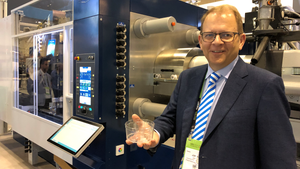The Real Green New Deal Is Plastic
Compared with vaunted alternative materials such as paper, plastics save water and trees at a time when potable water is scarce and deforestation is a major concern.
December 23, 2020

Environmentalists are extremely worried about the global water supply. They vigorously combat pollution in the world’s waterways, particularly plastic pollution, but the oceans are also filled with metal waste, including cargo containers and entire ships. Deforestation also is a major concern of environmentalists, who have long fought to save forests that also serve as carbon containment. Yet, more than 550 activist organizations are pushing to rid the world of plastic, the most eco-friendly material in use today when compared with textiles, steel and aluminum, wood and paper. Plastic is toxic, they say, a word they throw around freely in hopes that the fear-mongering will sway the general public to get on board.
The fact of the matter is that scarcity of potable water is a problem for many people around the world, and it continues to get worse. That should be reason enough to encourage people to choose plastic over paper, paperboard, and cardboard packaging, given that it takes trees and a whole lot of water to manufacture paper products. While paper is recycled at a fairly high rate, new wood pulp needs to be integrated in the mix to continue making new paper and paperboard products, which means that trees will continue to be cut.
Here's the big question: Should we use potable water that is an absolute requirement for all life on the planet to make paper, cardboard boxes, paperboard packaging products, and single-use paper cups? Or should we use plastic packaging and single-use plastic products that can be recycled?
That same question needs to be asked when it comes to trees and the issue of deforestation to make wood pulp for paper/paperboard, as well as wood pellets. Is the CO2 from cutting and processing trees, making wood pellets and, in many cases, shipping the pellets to Europe and burning them for heat and electricity, any less than what is released when incinerating plastic waste, as is done in several countries?
Water is a resource that many companies are considering in their long-range sustainability plans. Toray Industries Inc., part of the Toray Group and a maker of advanced composites and plastics, has been placed in the Water Security A List 2020 by CDP (formerly the Carbon Disclosure Project), a UK-based non-profit organization founded in 2000. This is the second consecutive year that Toray Industries has made the CDP’s A List.
Corporate social responsibility a founding principle for Toray Group
Toray Group explained that the company is committed to innovating advanced materials that help resolve environmental issues, in keeping with a principle since Toray’s founding in 1926 that corporations are public institutions that should contribute to society through business. Providing access to clean water is pivotal to the Toray Group Sustainability Vision, representing a roadmap to the World as Envisioned by Toray Group in 2060 and Toray Vision 2030.
The group is endeavoring to help alleviate water shortages across the globe through reverse osmosis membranes and other water-treatment technologies; reducing, reusing, and recycling water resources in business; and safeguarding water resources. Toray’s announcement notes that “just 0.01% of water on Earth is readily usable for daily living. Water stress — when annual water supplies are below 1,700 cubic meters per person — has become an issue amid population growth and economic development."
Global food demand should increase by more than 20% over the next 15 years, said Toray. “Water depletion could lead to frequent famines from crop failures. Access to water and sanitation for all accordingly is one of the United Nations’ 17 Sustainable Development Goals,” Toray stated.
“The unintended consequences of plastic bag bans” was one of my most-read and shared blogs this past year. In that article, I evaluated the negative environmental impact of paper bags and cotton/cloth bags based on scientific studies. The more these activist organizations and so-called environmentalists lobby to rid the world of plastics, the greater the negative impact of using wood pulp (trees) and water resources. If environmentalists really cared about the input of CO2 into the atmosphere, they wouldn’t recommend replacing plastic with paper/paperboard and cardboard in single-use and packaging applications. If they cared about our water supply, they wouldn’t recommend replacing plastic with paper. It’s obvious that a large resin and composites manufacturer like Toray understands this and is being recognized for its scientific knowledge in helping to preserve and improve the world’s potable water supply.
Plastic is made from petroleum (oil), which is a product formed from ancient biomass — trees and plants — and animal matter. So, you could say that all plastic is, in fact, bioplastic. It is also made from natural gas, which is also formed from ancient biomass and animal matter. You can read another one of my popular blog posts of 2020 — “Sorry, Folks, Oil Does Not Come from Dinosaurs” — to get more information. The crux of the matter is that all plastic is natural.
Is it better to use ancient biomass and animal matter than to use new trees that we are trying to save to serve as carbon-capture instruments? Is it better to manufacture a material that uses fewer natural resources to preserve those natural resources to help sustain life on the planet? I would have to say the answer is yes.
About the Author(s)
You May Also Like




